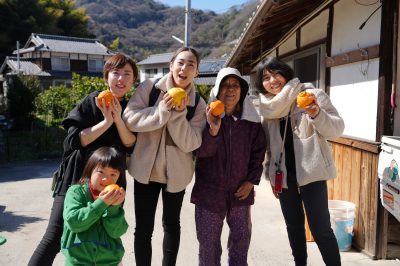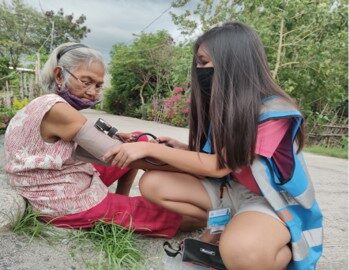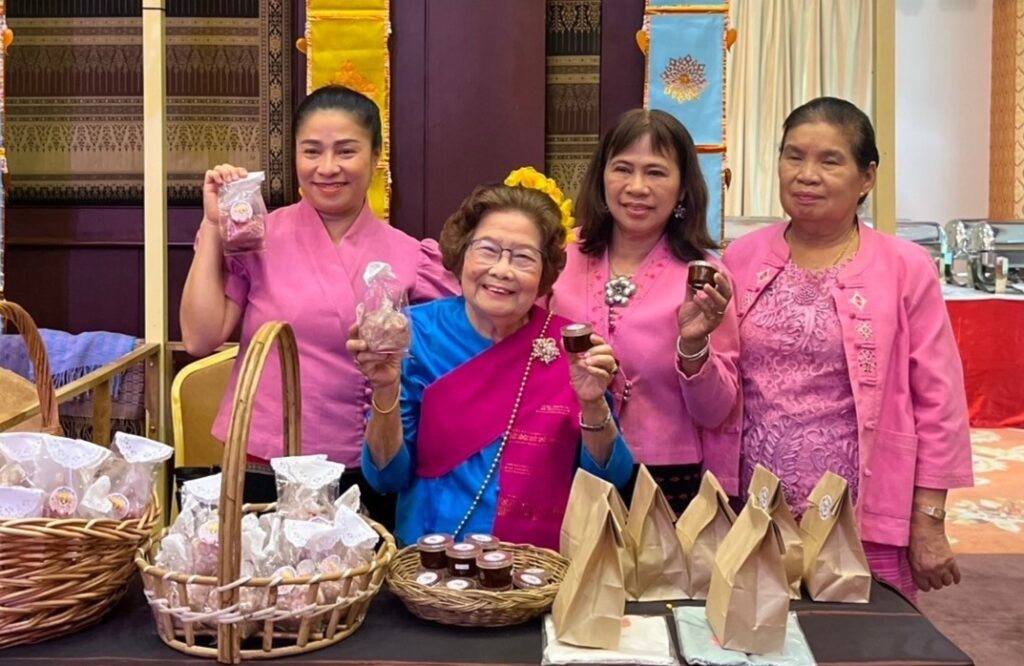2024 Healthy Aging Prize for Asian Innovation
We are delighted to share the winners of the 2024 Healthy Aging Prize for Asian Innovation (HAPI)!
This year marked the fourth round of HAPI, an award program designed to recognize and amplify innovative policies, programs, services, and products that address the challenges facing aging societies. It was the most competitive yet, with a high number of impressive applications received from across 12 countries or regions in East and Southeast Asia.
Congratulations to all of our winners!
2024 GRAND PRIZE
Technology & Innovation
Nurse & Craft | Japan
Home Nursing to Regenerate the Town
Like many remote areas, the island of Osaki Shimojima in the Seto Inland Sea has a small population, many of whom are older. Connected to the mainland by a toll bridge, the island faces a chronic shortage of medical and nursing care services. Nurse and Craft has developed a model that utilizes new technologies and techniques to find solutions that allow community members to remain in their homes safely, promote healthy behaviors, and lead more active and engaged lives. By setting up a home-visit nursing station on the island, they are able to assist residents in navigating telemedicine options to connect to doctors, introduce and implement IoT healthcare services, hold health classes to improve medical and digital literacy, and create opportunities for social interaction through monthly community lunches. The initiative also brings nursing students to the island for training and promotes health tourism to bring in both income and a needed boost of energy to the community.

Community-Based Initiatives
Padyarescue Inc. | Philippines
Go Bike Project—Ronda Kalusugan Program
In disaster-prone areas like the Philippines, older people with chronic diseases such as hypertension and diabetes are among the most vulnerable. Health monitoring is critical for older people to permit early detection and management of complications. The Go Bike Project trains and empowers a corps of young people who ride through their communities to carry out regular health monitoring for older neighbors, checking and recording blood pressure and blood sugar levels, and taking action if they find irregularities. They are equipped with bicycles, first-aid kits, medicine, and other items that let them provide basic healthcare. They are also trained to share knowledge on disaster preparedness and mitigation. The bikes make it possible to traverse various terrain and reach more remote areas, while also being environmentally friendly. To date, more than 1,200 Go Bikers have been certified and the project has served more than 37,000 people. It promotes intergenerational respect and communication and instills awareness of the importance of healthy living among the younger generation.

Supporting Self-Reliance
School of Lifelong Education, Chiang Mai University | Thailand
MEDEE—Fostering Work Skills for Seniors in the Digital Era
As Thailand’s working-age population decreases, more people will need to continue working into later life, but many lack the skills and tools needed to create ongoing income in the new digital economy. In collaboration with senior community partners, online courses and webinars are supplemented with in-person training sessions to teach seniors how to use technology, create an online business, and acquire various occupational skills to generate income and reduce dependency. It also teaches them about financial management and physical and mental health so they can live a fulfilling, self-reliant life as they age. This innovation is a part of Chiang Mai University’s strategic initiative on the UN’s SDG4 on quality education and is supported by the National Research Council of Thailand. The project is carried out in partnership with 2,500 elderly schools across the country, as well as by government, private, and community agencies.

Special Prize for Care Network Development
Institute for Community Care and Health Equity, Chung-Ang University; Summary A.I.; and Jeongeup City Public Health Center | South Korea
CARE-Net—A Smart Integrated Care Approach to Reach Older People in a Depopulated Area
The city of Jeongeup has been facing depopulation. Today, the overall percentage of people 65 and up is 31 percent, but that number rises to 46 percent in the rural areas, and many of those rural areas have no hospitals or clinics. In response, Chung-Ang University has worked with the city to develop a smart integrated care system. They created a digital platform, CARE-Net, that connects health, welfare, long-term care services, and medical care, allowing inter-agency data-sharing and communication that lets experts quickly identify a person’s needs and communicate with others to resolve them. Service beneficiaries can see their own health information and control who should have access to their data. Importantly, they created a system of village care managers (citizen health leaders), individuals who are selected and trained in each village to help their neighbors navigate the system and to serve as advocates on their behalf.
2024 SECOND PRIZE
Technology & Innovation
Lions Befrienders Service Association | Singapore
IM-OK
To combat social isolation, the Lions Befrienders Service Association (LBSA) created an easy-to-use elderly-friendly tablet device that lets users monitor and report their daily wellbeing. Pushing an “I am OK” button lets people know they are alright, and any missed check-ins alert family or LBSA volunteers to confirm the person’s safety. The tablet offers entertainment, learning, and health-related functions as well.
Community-Based Initiatives
Thye Hua Kwan Moral Charities, Agency for Integrated Care | Singapore
Micro-Jobs Program for Older People
The Micro-Jobs Program lets healthy, active seniors assist frailer peers in their neighborhood through tasks such as meal delivery, medication reminders, or accompanying people to doctor’s appointments. The tasks are “bite-size,” so there is a low barrier to entry. Participants are trained and receive a modest allowance in return for the tasks. More importantly, they feel a sense of purpose and engagement with their community.
Supporting Self-Reliance
Graduate School of Medicine, Tokushima University; Beauty Life Corp. | Japan
Online Exercise Salon for Older People through Industry-Academia Collaboration
Based on a unique concept of “gut-brain-muscle correlation,” this program offers online exercise and brain health broadcasts on a contract basis to nursing homes. By providing more than 10,000 combinations of evidence-based exercises designed to prevent frailty and maintain health, the salons reduce the need for nursing personnel to spend time and resources creating their own content to keep residents healthy and engaged.
2024 HONORABLE MENTION
Malaysian Research Institute on Ageing (MyAgeing™) | Malaysia
Digital Literacy Modules for Older Persons
YoungHappy Plus Co., Ltd | Thailand
YoungHappy Plus Online Community Platform Designed to Enhance the Quality of Life for Urban Seniors
Ready Senior Project

